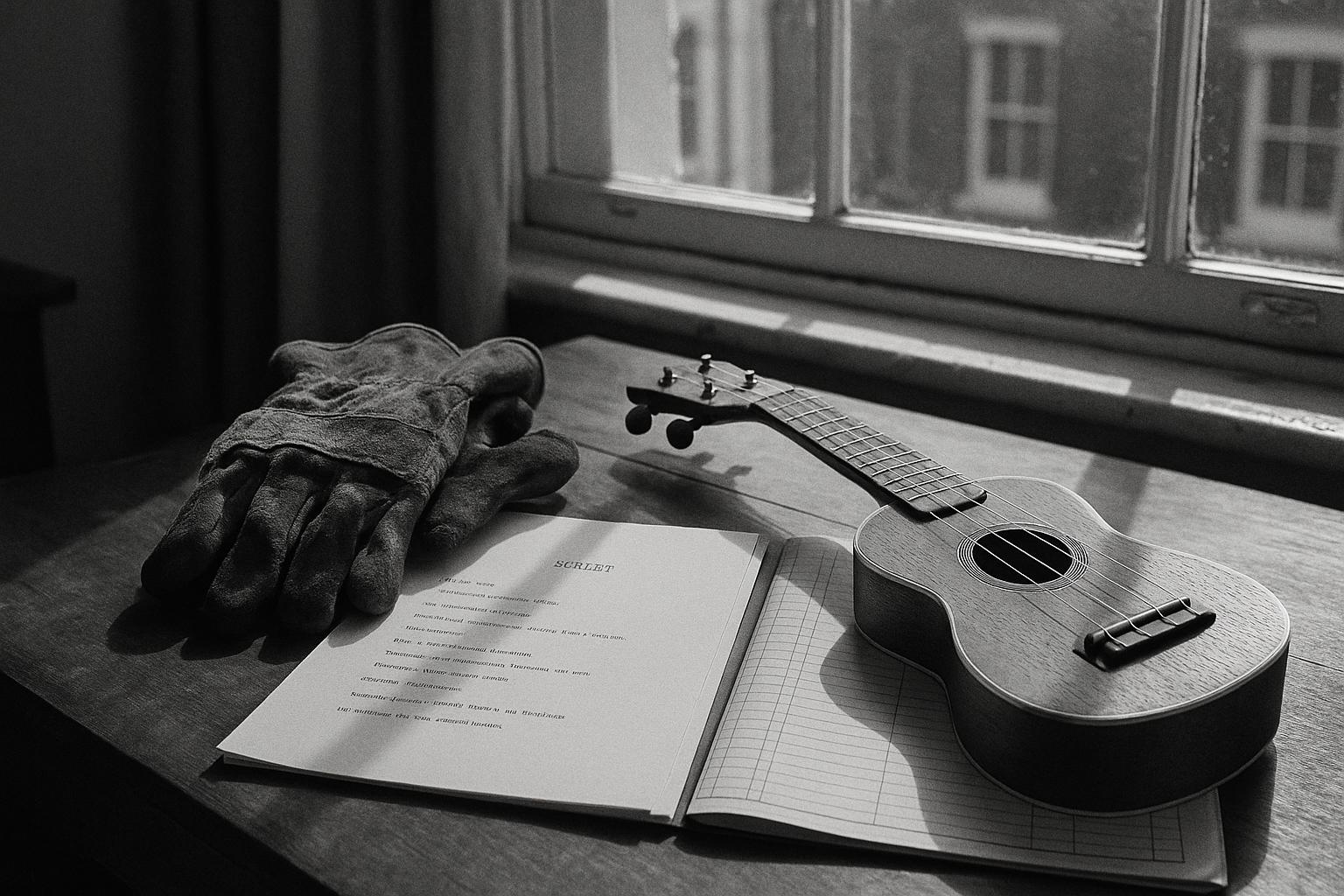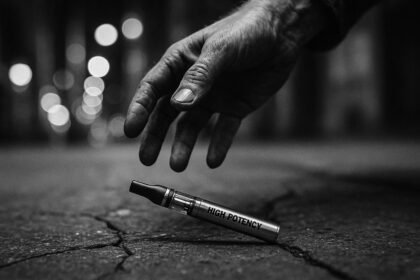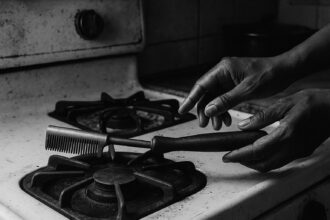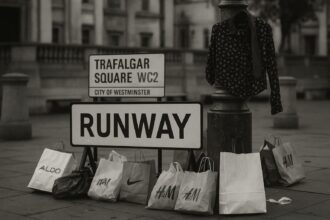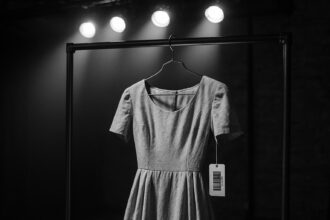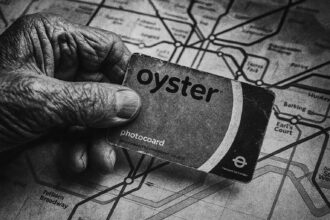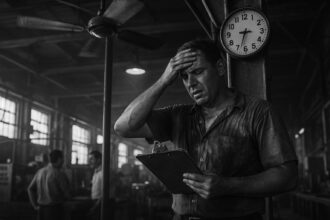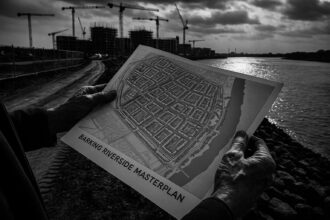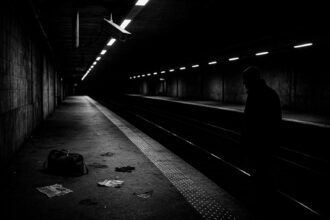In a candid Money Q&A with the Daily Mail the actor and author describes early money anxieties, patchy earnings, and property choices that led him to favour a cautious, ‘middle‑way’ approach to finances while pursuing stage, screen and writing projects.
Paterson Joseph’s recent Money Q&A with the Daily Mail offered a candid, quietly revealing account of how the actor and author thinks about money, work and security. Raised as one of six children in a three‑bedroom flat in Willesden, north‑west London, he told the paper that his parents — his father a plasterer and his mother a factory worker — taught him that money “could be the source of conflict” and that the safer aim was to sit “somewhere in the middle” financially. According to the original report, that instinct for modest security underpins many of his choices today.
Joseph’s account of patchy earnings and practical responses to lulls in work sits comfortably with the shape of his career. He recalled to the Daily Mail how, after an extended Broadway run of Hamlet with Ralph Fiennes in the 1990s, he spent a spell working on a building site for £70 a day while waiting for acting work to return. Profiles and career listings show a long and varied CV — from early Royal Shakespeare Company and National Theatre work to television parts in Peep Show, Casualty and, more recently, the big‑screen Wonka — and a sustained presence in US and UK television drama. He told the paper that the run on the American sci‑fi series Timeless (listed in some database entries at 26 episodes and in others at 27) illustrated both the financial boost a single series can bring and the broader instability of acting income.
Joseph also spoke frankly about the economics of being a British actor when Hollywood comes to town. He told the Daily Mail that big US productions shot in the UK often pay British actors at domestic rates rather than US union scales, and that commercial work can be lucrative — though he has turned adverts down when he could not endorse the product. He added a reminder about take‑home pay: an actor’s fee for a series may look sizeable but “they’ve got to hand over around 25 per cent to an agent or manager before paying tax,” he said to the paper, underlining the difference between headline fees and what remains in the bank.
Property decisions have played a role in his financial life. Joseph told the Daily Mail he bought a two‑bedroom house in Woking in 1995 for £58,000, later purchased a house in Tours with his then‑wife, and on returning alone to London in 2016 bought a north‑west London garden flat for a six‑figure sum. Those moves sit alongside a wider public life: other interviews and profiles note his LAMDA training, long theatrical pedigree and, more recently, his appointment as chancellor of Oxford Brookes University — a role that commentators have linked to his efforts to widen cultural narratives and to his support for outreach projects.
Alongside acting, Joseph has built a parallel identity as a writer and cultural advocate. His debut novel, The Secret Diaries of Charles Ignatius Sancho, fictionalises the life of the eighteenth‑century Black British figure and was published in 2023; publisher information and professional reviews describe it as a well‑researched, period‑voiced fictional memoir that has helped revive interest in Sancho’s life. Critics such as Kirkus praised its picaresque energy and historical detail while noting occasional unevenness, and publicity for the book frames it as an extension of Joseph’s stage research and his long engagement with stories that broaden Britain’s cultural memory.
Joseph has also used his profile to experiment with community projects: in interviews he has described recent opera work involving people who have experienced homelessness, reflecting a broader interest in performance as a vehicle for social inclusion. When asked hypothetically what he would do as Chancellor — a question posed in the Daily Mail feature — he said he would prioritise defence spending and more education funding so young people are “better able to face the financial challenges of the future,” linking his personal experience of precarious early finances with a public appetite for greater social support.
At a more human level, the Q&A revealed an actor who prefers small pleasures and practical safeguards over conspicuous consumption. He told the Daily Mail his proudest small purchase was a £200 electric ukulele bought to celebrate a role, and he laughed about early car choices that taught him thrift. On family, he said his 22‑year‑old son, a biochemist, is relatively secure and that he doesn’t expect to leave a dependent heir — “I’m just glad he’s not following me into the crazy acting game,” he told the paper — before adding, with characteristic bluntness, that his principal financial priority remains “not to die in a poorhouse.”
Taken together, Joseph’s remarks serve as a reminder that even high‑profile performers experience the same anxieties about irregular work, representation fees and long gaps between jobs as many freelance professionals. His trajectory — from Willesden library reading to LAMDA and the RSC, from stage to screen to novelist and university chancellor — illustrates how a career in the arts can offer rich cultural returns while remaining financially unpredictable, and why a cautious, middle‑way approach to money appeals to someone who has seen both scarcity and success.
 Reference Map:
Reference Map:
- Paragraph 1 – [1], [2]
- Paragraph 2 – [1], [5], [6], [7]
- Paragraph 3 – [1]
- Paragraph 4 – [1], [2], [7]
- Paragraph 5 – [3], [4]
- Paragraph 6 – [2], [1]
- Paragraph 7 – [1]
- Paragraph 8 – [2], [1], [7]
Source: Noah Wire Services
- https://www.dailymail.co.uk/money/meandmymoney/article-15006171/After-stint-Broadway-PATERSON-JOSEPH-work-building-site.html?ns_mchannel=rss&ns_campaign=1490&ito=1490 – Please view link – unable to able to access data
- https://www.theguardian.com/stage/article/2024/may/27/paterson-joseph-opera-peep-show – Claire Armitstead’s interview with Paterson Joseph explores his life from a Willesden childhood as the fifth of six siblings to his varied stage and screen career. Joseph recalls being encouraged by his local library, training at LAMDA, and early RSC work. He discusses his novel about Charles Ignatius Sancho, recent opera projects with homeless performers, family life including his son Glenn, and roles in Peep Show and Wonka. The piece highlights his efforts to broaden British cultural narratives, his appointment as chancellor of Oxford Brookes, and reflections on racial exclusion in education and the transformative power of reading and performance.
- https://us.macmillan.com/books/9781250882394 – Paterson Joseph’s debut novel, The Secret Diaries of Charles Ignatius Sancho, fictionalises the life of an eighteenth‑century Black British figure through diary entries and letters. Published by Henry Holt/Macmillan in 2023, the book draws on Joseph’s long research and stage work about Sancho, portraying his journey from enslavement to respected writer, composer and shopkeeper who influenced abolitionist thought. Reviews praise the period voice, humour and historical detail while noting occasional narrative unevenness. The publication elevated Joseph’s profile as a writer and contributed to renewed interest in Sancho’s life and wider conversations about Black British history in modern Britain.
- https://www.kirkusreviews.com/book-reviews/paterson-joseph/the-secret-diaries-of-charles-ignatius-sancho/ – The Kirkus review of The Secret Diaries of Charles Ignatius Sancho evaluates Paterson Joseph’s novel as an entertaining, well‑researched fictional memoir of the eighteenth‑century figure. It highlights Joseph’s evocation of period voice and vivid scenes, charting Sancho’s rise from childhood aboard a slave ship to musical success, association with literary figures and eventual status as a shopkeeper and voter. The review notes the novel’s picaresque energy and its illumination of rare opportunities for Black people in Georgian London, endorsing the work while signalling its contribution to historical fiction and broader recognition for Sancho’s overlooked place in British.
- https://www.nbc.com/timeless/credits/character/connor-mason – The NBC Timeless character page profiles Connor Mason, the tech entrepreneur played by Paterson Joseph, and outlines Joseph’s acting background. It notes his London upbringing, LAMDA training, extensive theatre work with the RSC and National Theatre, and screen credits including The Beach and Æon Flux alongside television roles such as Peep Show and The Leftovers. The page presents Joseph as an experienced performer who brings gravitas to the series’ ensemble, and confirms his portrayal of a central figure in the time‑travelling drama. It also states he currently resides in London and summarises his diverse career across stage, film and television.
- https://www.tvmaze.com/people/27341/paterson-joseph – TVmaze’s Paterson Joseph profile lists his television credits and records his starring role as Connor Mason in Timeless across twenty‑seven episodes. The page catalogues his appearances in other series such as Peep Show, Green Wing, Survivors and You, Me and the Apocalypse, and notes guest roles and recurring parts. It provides episode titles and dates for many entries, offering a clear overview of his television career and longevity. The database is a practical resource for tracking serial work and confirms his significant presence in US and UK television drama, substantiating claims about his recurring employment on long‑running shows since 2016.
- https://en.wikipedia.org/wiki/Paterson_Joseph – Paterson Joseph’s Wikipedia entry provides a comprehensive biography, recording his birth in Willesden in 1964, LAMDA training and early Royal Shakespeare Company work. It lists prominent screen roles including Alan Johnson in Peep Show, parts in Casualty, Green Wing, The Leftovers, Noughts + Crosses and the 2023 film Wonka, plus his stage achievements. The page notes his authorship of The Secret Diaries of Charles Ignatius Sancho, awards received, and his appointment as Chancellor of Oxford Brookes University. As a frequently updated compilation, the article aggregates press references and filmography details, serving as a convenient summary of his career and achievements.
Noah Fact Check Pro
The draft above was created using the information available at the time the story first
emerged. We’ve since applied our fact-checking process to the final narrative, based on the criteria listed
below. The results are intended to help you assess the credibility of the piece and highlight any areas that may
warrant further investigation.
Freshness check
Score:
7
Notes:
The narrative presents recent insights from Paterson Joseph, including his debut novel published in 2023 and his appointment as Chancellor of Oxford Brookes University. However, some content appears to be recycled from previous interviews and profiles, such as his early life and career details, which have been covered in earlier publications. ([amp.theguardian.com](https://amp.theguardian.com/stage/article/2024/may/27/paterson-joseph-opera-peep-show?utm_source=openai))
Quotes check
Score:
6
Notes:
Several direct quotes from Paterson Joseph, including his reflections on his upbringing and career, have been previously published in other sources. ([amp.theguardian.com](https://amp.theguardian.com/stage/article/2024/may/27/paterson-joseph-opera-peep-show?utm_source=openai))
Source reliability
Score:
5
Notes:
The narrative originates from the Daily Mail, a reputable UK newspaper. However, the presence of recycled content and the lack of new, exclusive information raise questions about the originality and reliability of the report.
Plausability check
Score:
8
Notes:
The claims made in the narrative align with known facts about Paterson Joseph’s career and personal life. However, the recycling of older material without significant new insights may affect the overall credibility of the report.
Overall assessment
Verdict (FAIL, OPEN, PASS): FAIL
Confidence (LOW, MEDIUM, HIGH): MEDIUM
Summary:
The narrative presents recycled content from previous interviews and profiles, with limited new information. The reliance on older material without significant updates or exclusive insights raises concerns about the freshness and originality of the report, leading to a ‘FAIL’ assessment.


